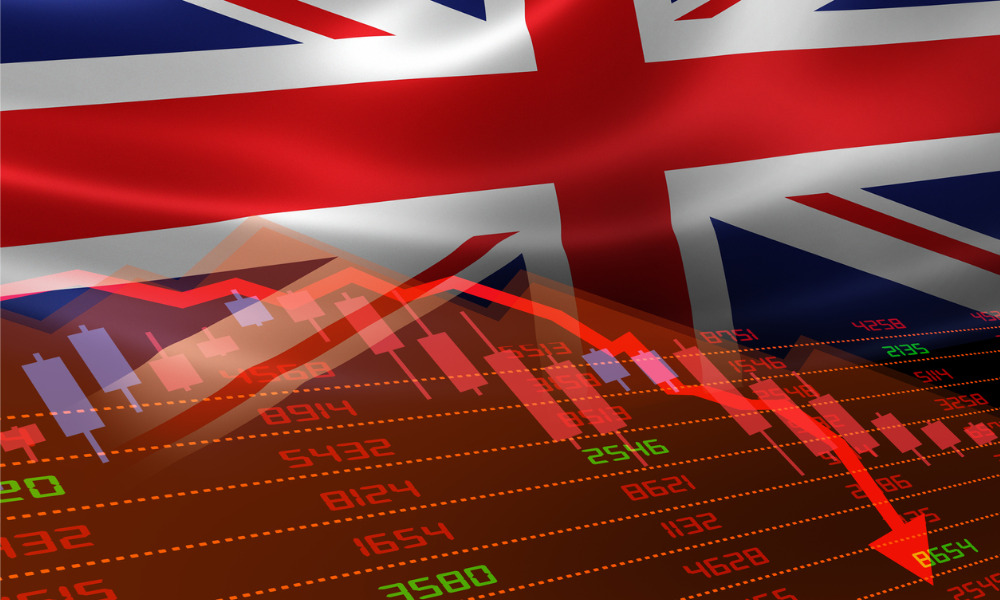Expert says GDP bouncing up and down is "bad news for future economic growth and investment"

The UK economy shrank by 0.5% in July as three major sectors experienced a slowdown, figures from the Office for National Statistics (ONS) have shown.
Gross domestic product (GDP) had its largest drop in July, following a 0.5% growth in the previous month. In the three months to July, however, GDP increased by 0.2%.
Monthly GDP showed no growth in July compared with the same month last year. For comparison, monthly GDP grew by 0.9% between June 2022 and June 2023.
Our initial estimates show GDP fell 0.5% in July 2023:
— Office for National Statistics (ONS) (@ONS) September 13, 2023
▪️ services fell 0.5%
▪️ production fell 0.7%
▪️ construction fell 0.5%
➡️ https://t.co/qgYfmT6ulm pic.twitter.com/bb1cmreGL1
The ONS reported that services output fell by 0.5%, after growth of 0.2% in the previous month, and was the main contributor to the fall in GDP in July.
Production went down by 0.7% while the construction sector fell by 0.5%. This was after both sectors experienced significant growths of 1.8% and 1.6%, respectively, in the previous month.
Output in consumer-facing services showed no growth in July, following growth of 0.5% in June 2023.
“Our initial estimate for July shows that GDP fell; however, the broader picture looks more positive, with the economy growing across the services, production, and construction sectors in the last three months,” commented Darren Morgan, director of economic statistics at the Office for National Statistics.
“In July, industrial action by healthcare workers and teachers negatively impacted services and it was a weaker month for construction and retail due to the poor weather. Manufacturing also fell back following its rebound from the effect of May’s extra bank holiday. A busy schedule of sporting events and increased theme park visits provided a slight boost.”
Nicholas Hyett, investment analyst at Wealth Club, pointed out that while industrial action explains why the services sector was weaker in July, there was also weakness across business facing services.
“Corporate weakness is also reflected in the weak manufacturing data, suggesting that while consumers are still willing to splash the cash to some degree, businesses are spending less and industrial demand is weak,” Hyett said. “Together with a decline in job vacancies announced earlier in the week, it suggests to us that the UK economy is slowing.
“The UK’s hokey-cokey economy isn’t making life easy for businesses or central bankers. With growth bouncing up and then down and interest rate rises ruled in and then out, forward planning is difficult. That tends to make businesses nervous and keen to preserve cash – bad news for future economic growth and investment.”
Any thoughts on the state of the UK economy? Let us know by leaving a comment in the discussion box at the bottom of the page.



